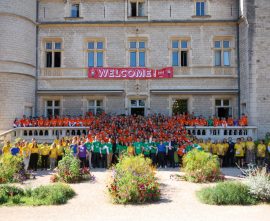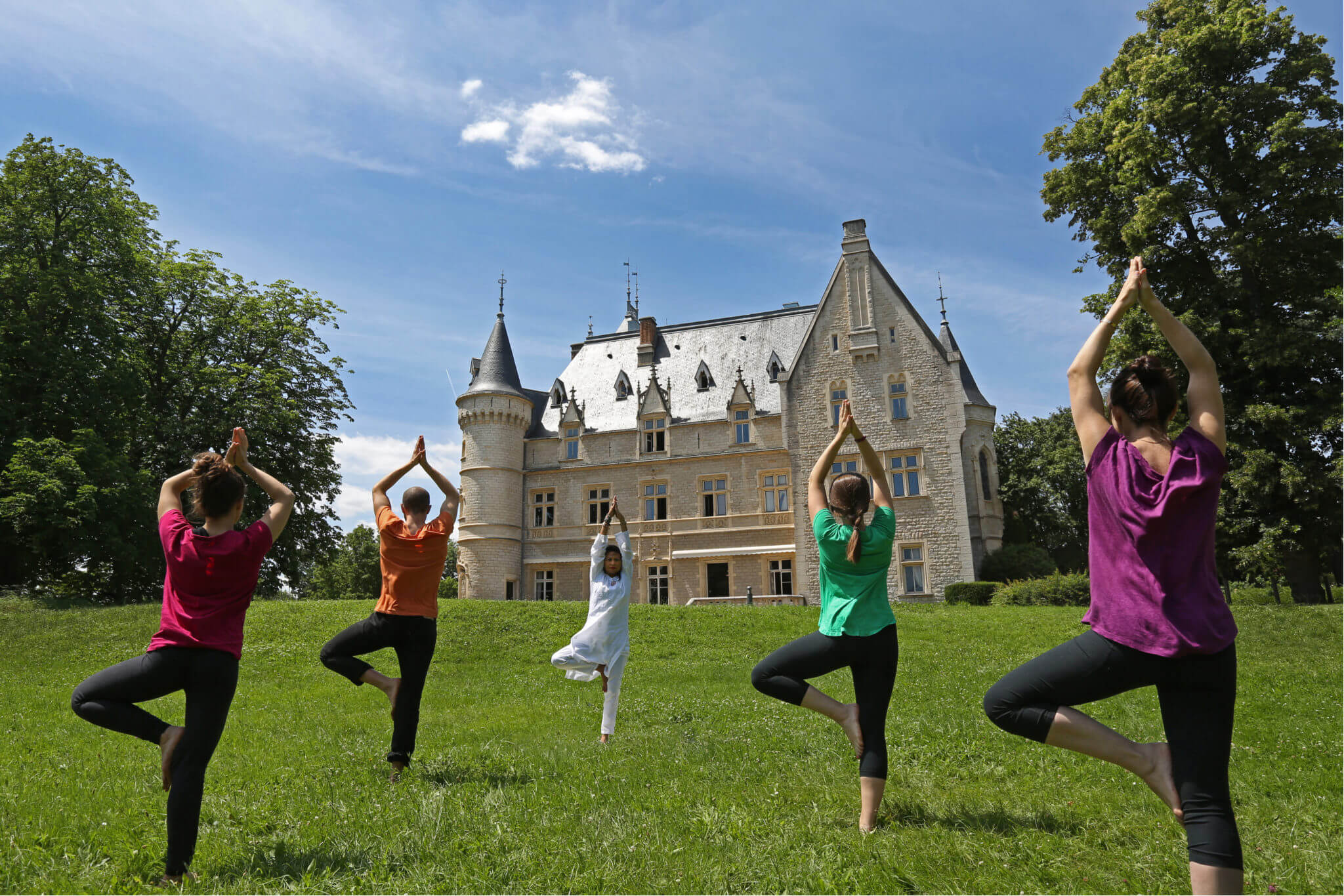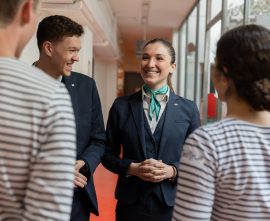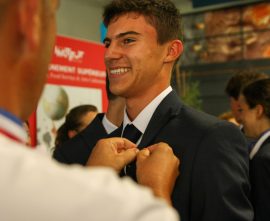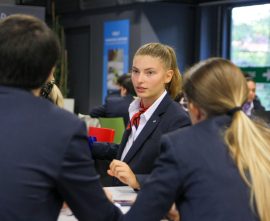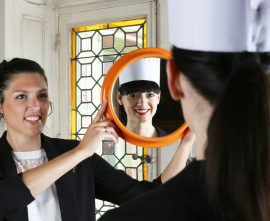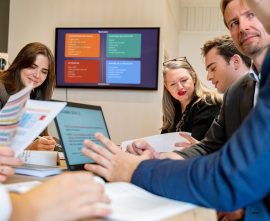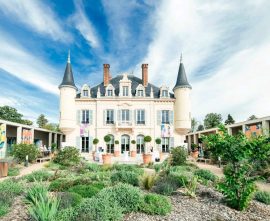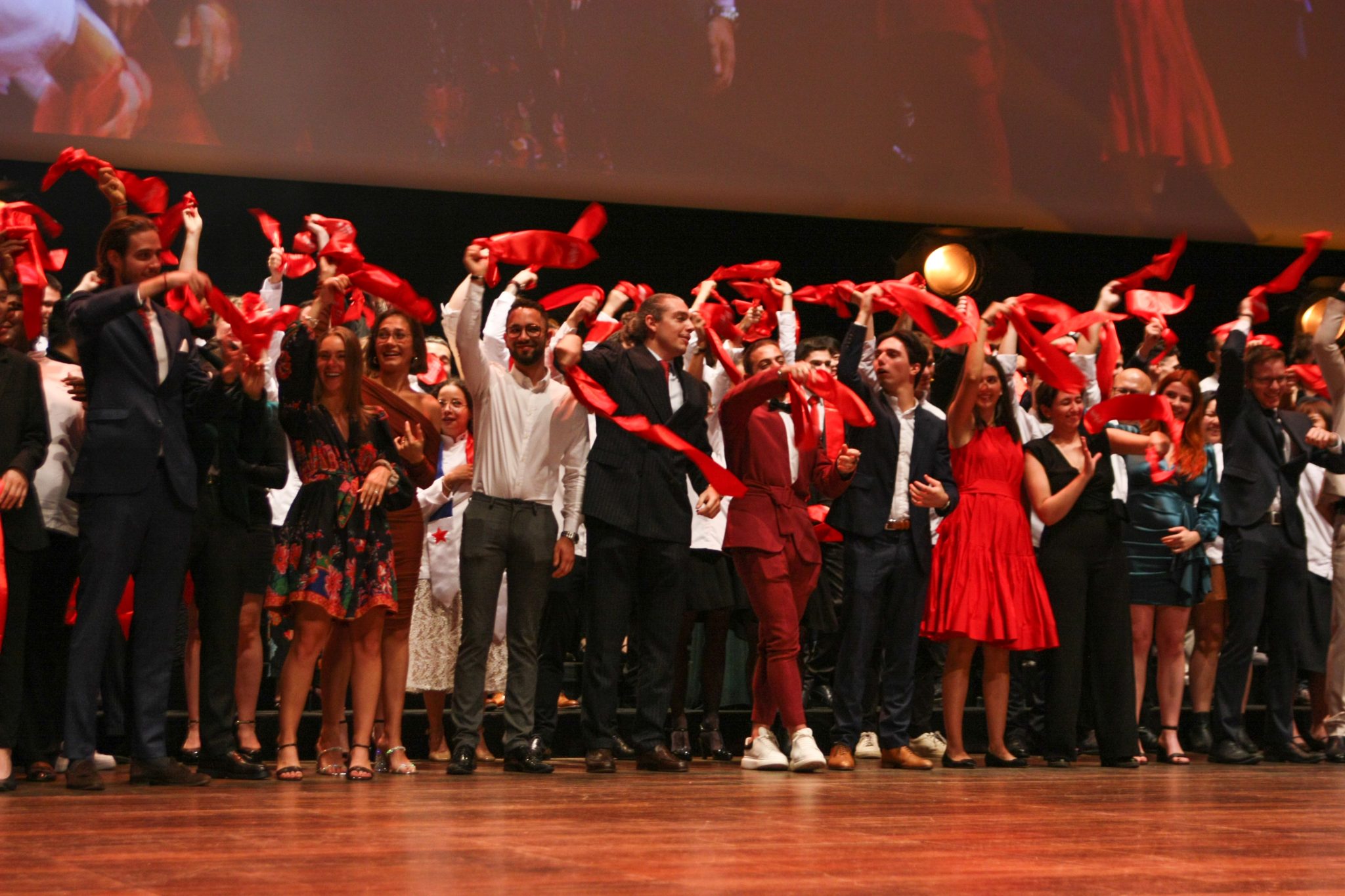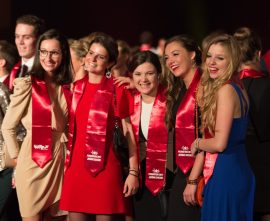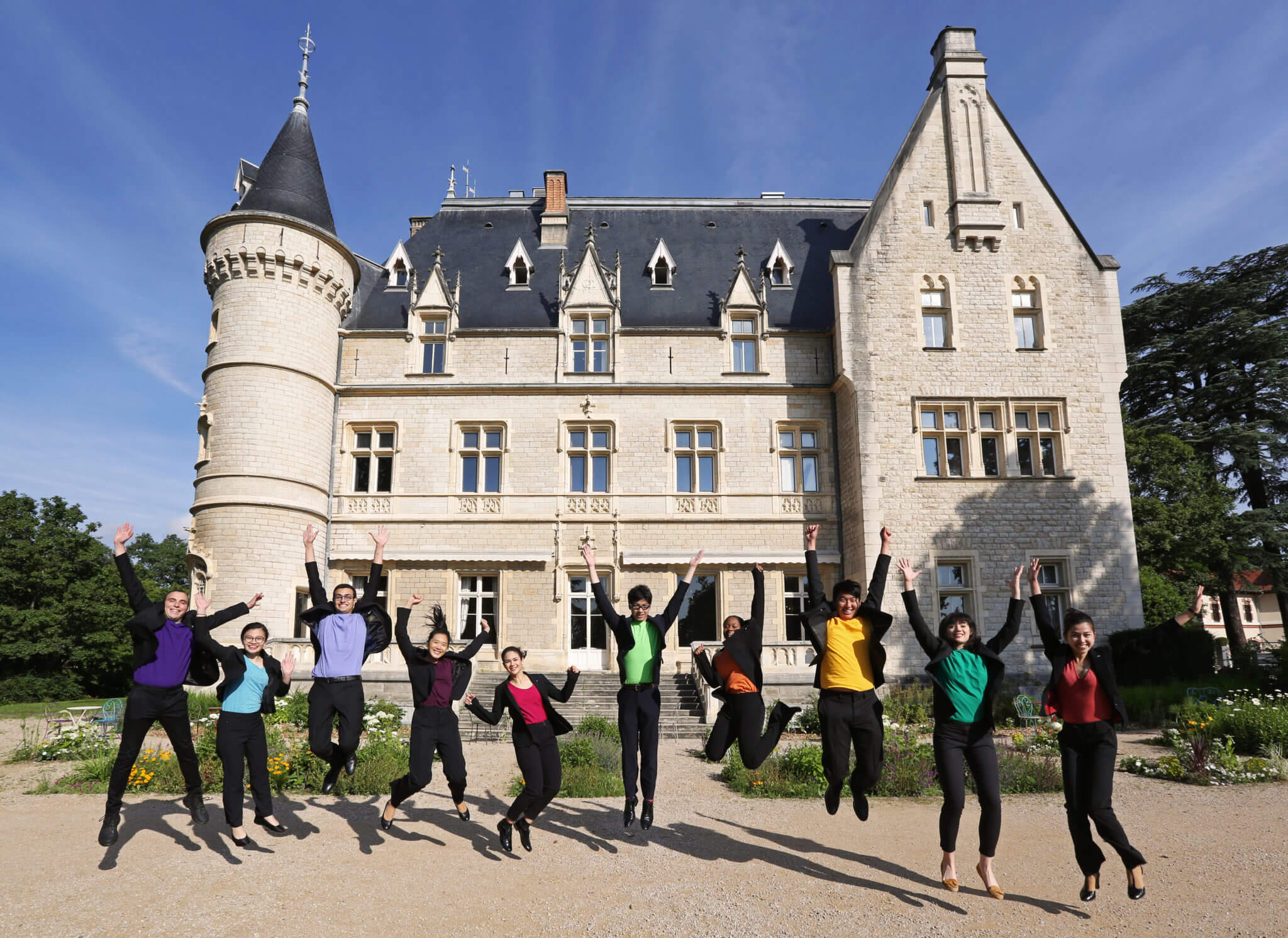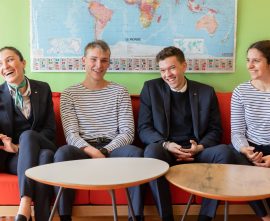From Lyon to Woosong, Juline and Eva are in universitary exchange at Solbridge University
Home News International events
Faire défiler la pageJuline and Eva, second year students on the Bachelor’s degree in International Hospitality Management, have chosen for their fourth semester to do a university exchange at Solbridge University – Woosong in South Korea. They share their experience with us:
Juline and Eva in universitary exchange at Woosong
What made you want to go on a mobility exchange to South Korea?
Juline: One of the reasons I chose IPB is the international outlook, whether it be through the students, the internship opportunities or the Erasmus exchanges. Asia is a continent that is personally important to me. South Korea was proposed, so I embarked on the adventure without knowing the country, the culture or the language.
Eva: I think the idea of discovering a new country and a new system intrigued me a lot. The opportunity of the Erasmus programme was much too big to pass up. The support of Institut Paul Bocuse was a real trigger in this project where I found myself being helped and supported from the beginning.
How did you feel about leaving?
Eva et Juline: To be honest, our biggest apprehension was the fact that we were not comfortable with the culture shock. I was apprehensive about the “Korean way of life”, i.e., a deep respect for the rules. But you get used to it very quickly and you quickly get carried away by a rich and exciting culture.
The best advice I could give would be to overcome your apprehensions and give 100% to your exchange experience. We don’t study all our lives, so we might as well make the most of it!
What are you learning there, in terms of skills, but also from a human perspective?
Eva: As an exchange student in Business of Administration, we had over 150 subjects to choose from. The subjects are very diverse, ranging from accounting to photography to gender culture in society. In my case, I chose to follow courses in business ethics, start-up creation, human resources, negotiation and finally cross-cultural management in Asia. The wide range of choices available to me at Solbridge University has allowed me to develop deep values that will serve me in my professional as well as in my personal life.
Juline: I’m learning a new language! Korean is nothing like English or French. I’m discovering a new alphabet and new sounds. So, it’s a completely different, and sometimes frustrating, way of communicating, especially with people who only know how to speak Korean (and there are many of them!). In terms of interpersonal skills, I’m discovering a freedom, new cultures, ways of doing things, religions and a human diversity that encourages and motivates me throughout this adventure.
What is life like in South Korea?
Eva: What impressed me the most about Korea was the mix of periods throughout the country. It is not common to see big Asian megacities mixing modernity and tradition. Temples mix with tall buildings and business centres in the capital, Seoul, giving the city a very special look. Seoul is a big city, almost seven times the size of Paris, and it is full of secrets. It’s also a city that was designed to accommodate a lot of people and so it adapts its individual behaviour for the benefit of the common good.
Juline: The most striking aspect is the feeling of being in a place that is so familiar and yet completely unknown. This is because of the combination of American influence and Asian history.
Also, people here respect the rules, whether it’s wearing a mask or not crossing a pedestrian crossing on red, even if there are no cars. It’s a much quieter way of life where you take the time to do things.
How is your Erasmus student life in South Korea organised?
Eva: After an induction week, I was lucky to start classes in a very well-equipped school. The school has 17 floors including a swimming pool, a gym, a basketball court, a sauna, a cafeteria, a café and even a traditional Korean restaurant. A great student life is in place and there are plenty of places to meet new people and do new activities. Thanks to the opportunities on campus, I even had the opportunity to create my own traditional bamboo bowl.
Juline: The biggest advantage of this exchange is that we can choose what we want to study. This allows us to organise our schedule as we wish and to follow the courses that are most interesting for us. I also find myself surrounded by lots of people from all over the world. As far as the courses are concerned, all communication is done via an application. For example, all our homework and exams are handed in electronically, which encourages independence.
What have you learnt about the South Korean culture?
Eva: One thing is for sure, Korean culture is rich and full of surprises, for example Confucianism or the culinary traditions around a traditional meal, Korea offers a lot. The tradition that touches me the most on a daily basis is the way of greeting. Indeed, in order to show respect to the person in front of us, it is customary to bow one’s head downwards. This is a far cry from the friendly French “bise”!
Juline: The culinary culture is very different here. Koreans go out almost every night and never go to bed before 2am. To compensate, they fall asleep on the transport (or other places) very easily! Family is very important here and the elderly must always be respected, they must be spoken to with a certain personal pronoun and certain agreements.
Do you think it will be a springboard for your future career?
Eva: I’m convinced that this exchange semester will be a real asset for my career, but also for my long-term professional project. I have always been attracted to the Asian culture and I think it is a growing market that deserves to be developed more in France. I would be honoured to bring a bit of Korea back to France.
Juline: Yes, I think it’s a real asset both professionally and personally. This exchange is taking me out of my comfort zone and making me learn a lot about life. I’d like to do my second-year internship in Seoul where I’m sure I will learn from this country.
International mobility is an opportunity for each student to grow professionally and individually by discovering the treasures of the world and new cultures. For us, international mobility represents an invitation to travel the world to cultivate diversity, explore global careers and become a citizen of the world.
As part of our Bachelor’s degree in International Hospitality Management, the semester abroad becomes compulsory in order to train decision-makers of tomorrow’s hotel industry who are agile, responsible and open to the world.

